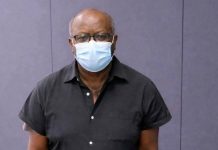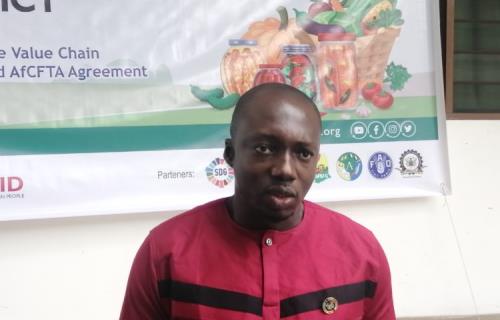Founder and Director for Agency for Health and Food Security Mr. Kwaku Onwona-Hwesofour Asante has thrown his support behind the global efforts towards ending Non-Communicable Diseases (NCDs).
According to Mr. Asante, the struggle to Eradicate NCDs and their associated morbidity and mortality is a duty of all and not just the civil society organisations and public health entities.
He revealed that NCDs are responsible for the mortality of 41 million people each year, equivalent to 71% of all deaths globally.
“Each year, 15 million people die from NCDs between the ages of 30 and 69 years; over 85% of these premature deaths occur in low- and middle-income countries.
Cardiovascular diseases account for most NCD deaths, 17.9 million people annually, followed by cancers (9.0 million), respiratory diseases (3.9million), and diabetes (1.6 million).
These four groups of diseases account for over 80% of all premature NCD deaths across the globe.
Tobacco use, physical inactivity, the harmful use of alcohol, and unhealthy diets all increase the risk of dying from an NCD,” he revealed.
The Founder and Director for Agency for Health and Food Security made these revelations during a virtual Global Conference on Localising Sustainable Development Goals under the theme Strengthening Prevention and Control of NCDs; The Role of CSOs across the globe.
He mentioned that SDG targets 3.4 mandates that by 2030 premature mortality from NCDs be reduced by one-third through prevention, treatment, mental health, and wellbeing.
“SDGs target 3. A indicated that we must Strengthen the implementation of the World Health Organization Framework Convention on Tobacco Control in all countries.
Women in fertile ages (WIFA) between ages 15-45 must keep fit, control weight and prevent NCDs by participating in physical activities, consuming less fats, sugars, and salt, and consuming more fruits and vegetables” he stated.
Mr. Asante indicated that within the African context, NCD interventions are challenged by poor data landscape, low prioritization, policy fragmentation, insufficient leadership, and governance arrangements.
“AHEFS over the past one and half decades have championed in-school and out-of-school preventive education, keep fit support programs, nutrition education, collaborative research, training of CSOs to localize and facilitate the dissemination of health information and behavioural change communication messages and community mobilization activities.
The spread of COVID should not limit or compromise the attention needed for NCD prevention and control and that innovative outreach strategy including resorting to social media outreach among, media engagements, the use of information, education, and communication (IEC) materials should be encouraged to reinforce preventive messaging against NCDs,” he pointed out.
He also reminded persons living with NCDs to be conscious of their conditions and obtain prompt treatment from the nearest health facilities in spite of the apparently heightened attention on COVID.
Mr. Asante believes that deliberate funding support to civil society promotional activities would help in this campaign.
“Stakeholders must establish infrastructural support facilities for sports and youth development, support for universal health coverage, provision of essential medicines, policy coherence of NCD initiatives, and dedicated funding arrangements for civil society promotional activities.”
With over 30,000 registered non-profit organisations in Ghana alone, it is high time NCD community support facility is established to resource community-based NPOs against NCDs” he added.
The speakers were Mr. Valere Sossou from Bennin, Mr. Munib Ur Rehman from Pakistan, Ms. Ar Datin, Dr. Norwina Mohd from Malaysia, Major General Dr. Anathbandhu from India, Dr. Premesh Chandra from India, Dr. Almax Giziew Adunga from Bhutan, Mohd Nazri Bin Muhammad from Malaysia, Mr. Ashish Baru from Bangladesh and Amb. Ihuoma Chinecherem E. from Nigeria.











































